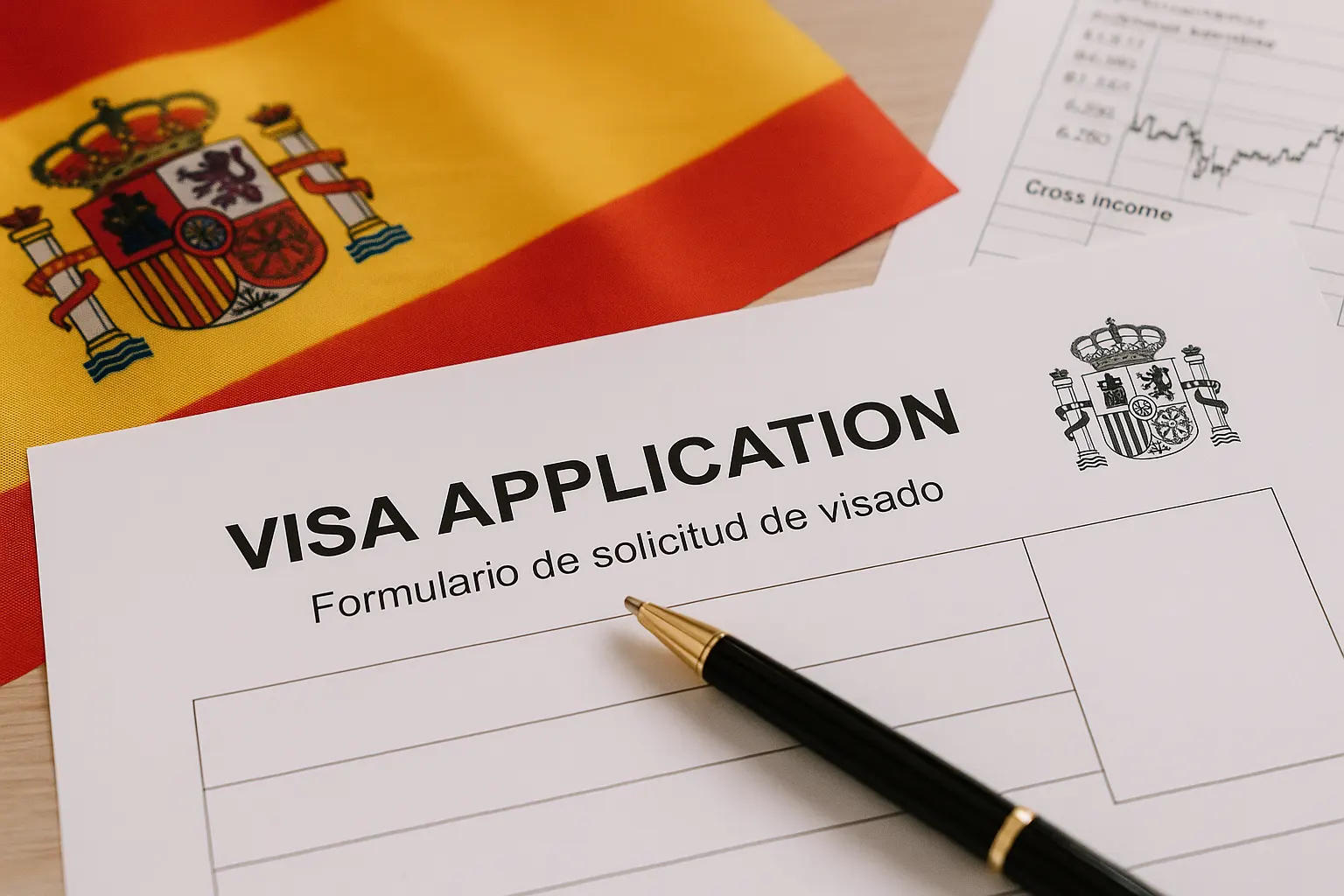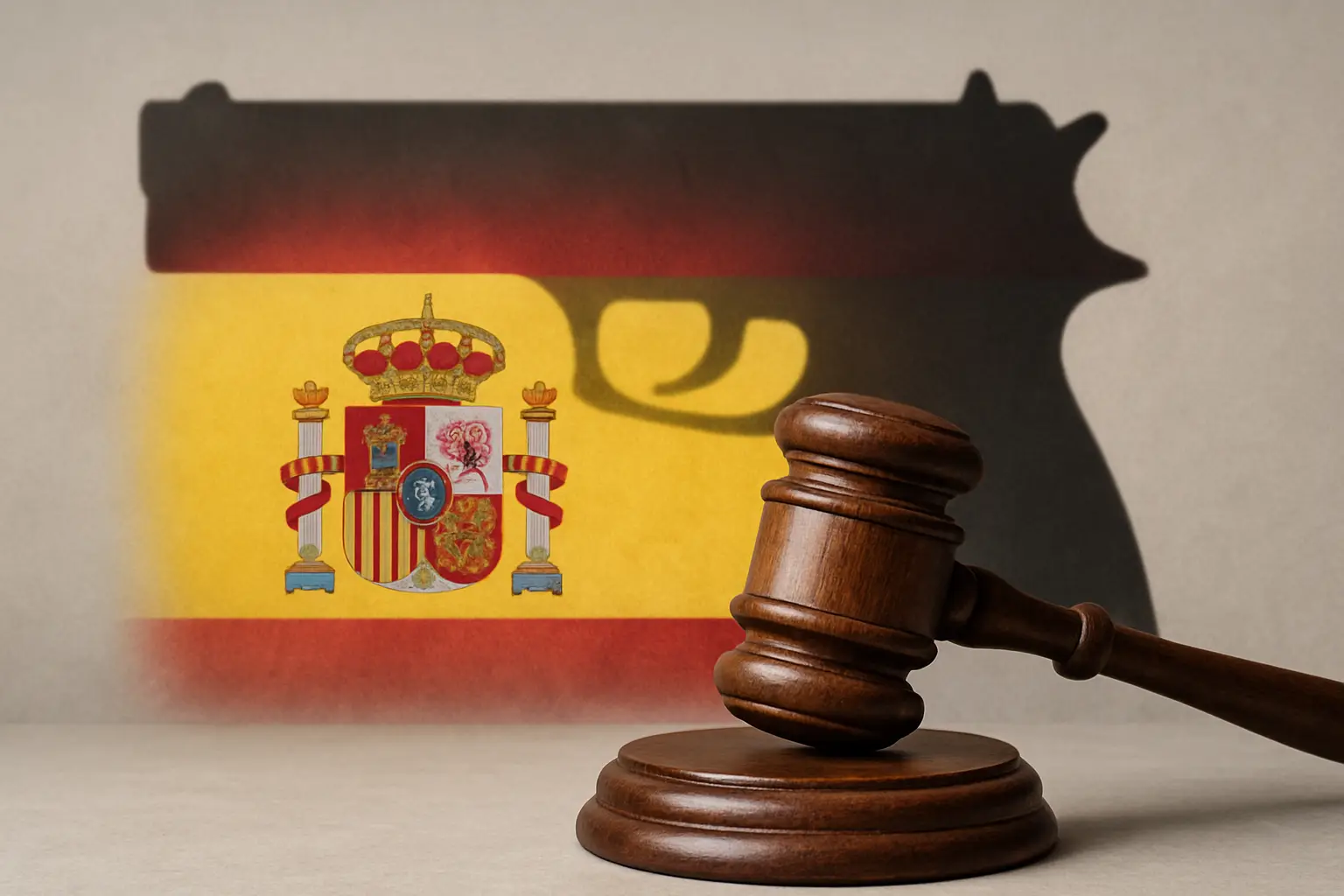Becoming an autónomo in Spain offers a path to professional independence and flexibility. This article provides a comprehensive guide on how to become an autonomo in Spain: step-by-step for 2025. Whether you are a freelancer aiming to launch your services or an entrepreneur planning your business, understanding the registration process and legal obligations is essential.
Freelancers often encounter complexities navigating Spain’s legal framework. Knowledge of these requirements ensures compliance, avoids penalties, and secures access to social benefits. For instance, understanding common tax deductions for expats living in Spain can significantly ease financial burdens.
Insights from NIM Immigration Lawyers Spain, experts in immigration and tax law, enrich this guide with practical tips tailored for both EU and non-EU nationals. Their digital-first approach simplifies interactions, enabling you to manage your autonomo status efficiently without unnecessary bureaucratic delays.
By following this detailed roadmap, you will be well-equipped to start your journey as an autónomo in Spain with confidence. Along the way, you might also want to explore options like the Beckham Law, which can help expatriates save on taxes, or delve into specific areas such as how crypto taxes work in Spain for expats or how digital nomads pay taxes in Spain, ensuring a smoother transition into your new role.
Step 1: Registering as an Autónomo
1. Registering with the Tax Agency
To kickstart your journey as an autónomo in Spain, the initial crucial step involves registering with the Tax Agency. This process is fundamental to establish your legal status as a freelancer in the country.
2. Filling Out Form TA0521
The pivotal document you need to complete is form TA0521. This form captures essential information about your business activities and personal details required by the Spanish authorities.
3. Submitting at Your Local Tax Agency Office
Once you have diligently filled out form TA0521, it must be submitted at your local Tax Agency office. This step ensures that your registration is officially processed and recognized by the relevant authorities.
4. Common Mistakes to Avoid during Registration
When navigating the registration process, it’s vital to steer clear of common pitfalls that could delay or complicate your registration. Some key mistakes to avoid include incorrect completion of forms, missing documentation, or misunderstanding specific requirements set forth by the Tax Agency.
By meticulously following these steps and being mindful of potential pitfalls, you can smoothly navigate the process of registering as an autónomo in Spain, setting a solid foundation for your freelance endeavors in the country.
Step 2: Obtaining a NIE Number and Tax Registration
The NIE number (Número de Identificación de Extranjero) is essential for all foreigners conducting business or professional activities in Spain, including autónomos. This identification number serves as your tax reference and is mandatory for any official fiscal transactions, such as invoicing clients, filing taxes, and social security registration. Without a valid NIE number, tax registration cannot be completed.
How to Apply for a NIE Number
The application process requires submitting specific documents at a local police station or the Foreigners’ Office (Oficina de Extranjeros):
- Completed application form EX-15
- Valid passport or national identity card (original and copy)
- Proof of the reason for requesting the NIE (e.g., business registration documents or a declaration of intent to freelance)
- Recent passport-sized photographs (typically two)
- Payment of the corresponding fee (Modelo 790 code 012)
Once issued, your NIE number remains valid indefinitely and must be used in all tax filings and official documentation related to your autónomo status. Registering your NIE with the tax authorities completes your tax registration, enabling you to legally operate as a freelancer in Spain.
In addition to the NIE, understanding other tax identification numbers in Spain, such as the NIF number, is also crucial. The NIF number is often required for various official purposes including tax, banking, property, or business activities.
Step 3: Setting Up Your Business Bank Account and Licenses
Why Having a Separate Bank Account for Your Business is Essential as an Autónomo in Spain:
- Separation of Finances: Keeping personal and business finances separate is crucial for financial organization and tax purposes. It helps track business expenses, income, and simplifies accounting processes.
- Legal Requirement: Spanish law mandates that autonomos maintain distinct accounts for business transactions. Failure to comply can lead to penalties or legal issues.
- Professionalism: Having a dedicated business account enhances credibility with clients, suppliers, and financial institutions.
Different Types of Licenses You May Need Depending on Your Business Activities:
- Activity-Specific Licenses: Certain professions or businesses require specific permits or licenses to operate legally in Spain. For example, healthcare providers, food establishments, or transportation services.
- Local Regulations: Depending on the region or city where your business operates, additional permits might be necessary. It’s crucial to research local requirements to ensure compliance.
- Consultation: Seeking advice from legal experts like NIM Immigration Lawyers Spain can help navigate the complex licensing landscape and ensure all necessary permits are obtained.
Setting up a business bank account and obtaining the right licenses are foundational steps in establishing yourself as an autónomo in Spain. By adhering to these requirements, you lay a solid groundwork for your freelance venture while staying compliant with Spanish regulations.
Step 4: Understanding Your Tax Obligations as a Freelancer
Becoming an autónomo in Spain comes with specific tax responsibilities. Awareness of these obligations is crucial to avoid penalties and maintain compliance.
Key Tax Responsibilities
1. VAT Returns (IVA)
Most freelancers in Spain must charge Value Added Tax (IVA) on their invoices. You are required to file quarterly VAT returns, declaring the amount of VAT collected from clients and deducting VAT paid on business expenses. The standard VAT rate is 21%, though some services may have reduced rates or exemptions depending on the sector.
2. Income Tax Advances (IRPF)
Autónomos make advance payments on their annual income tax through quarterly installments. These payments are based on estimated earnings and are submitted using form 130 or form 131 depending on your accounting regime. Keeping up with these advance payments prevents large lump sums at year-end and helps manage cash flow.
Record-Keeping Tips for Tax Purposes
Maintaining accurate and organized financial records is essential for tax reporting:
- Separate Documentation: Keep invoices, receipts, and bank statements clearly categorized by income and expenses.
- Digital Tools: Utilize accounting software or spreadsheets designed for freelancers to track transactions efficiently.
- Regular Updates: Record income and expenses promptly to avoid backlog and errors during filing periods.
- Expense Deductions: Identify deductible business expenses such as office supplies, travel costs, or professional services to reduce taxable income.
Understanding these tax processes ensures that you fulfill your fiscal duties correctly and minimize risks associated with tax audits or sanctions by the Agencia Tributaria. Additionally, high-earning expats can unlock significant tax advantages under the Beckham Law in Spain, which could result in substantial savings. It’s also important to stay updated on Spain’s 2025 tax brackets to effectively plan finances and maximize deductions.
Step 5: Navigating Social Security Contributions and Benefits
Understanding the social security system in Spain is crucial for freelancers, including autónomos. It plays a significant role in providing healthcare coverage, retirement benefits, and other social protections.
Contribution Rates for Autónomos in 2025
In 2025, the contribution rates for autónomos vary based on income levels. Monthly contributions are calculated as a percentage of your earnings, with a minimum and maximum threshold. Freelancers need to pay close attention to these rates to ensure compliance with the law.
Benefits of Contributing to the Social Security System
By contributing to the social security system, autónomos can access benefits such as:
- Healthcare services
- Maternity/paternity leave
- Disability benefits
- Pensions
These benefits provide a safety net for self-employed individuals in times of need.
Additional Considerations for Non-EU Nationals
Non-EU nationals have specific visa and residence permit requirements when starting self-employment in Spain as an autónomo, which are different from those of EU citizens.
For non-EU nationals who want to become autónomos in Spain, it is essential to obtain a self-employed work visa and residence permit.
To smoothly enter the Spanish freelance scene, it is important to know the exact criteria and procedures for getting these permits.
Conclusion
Now that you have a better understanding of what it means to be an autónomo in Spain, it’s time to take action and start your journey!
Becoming an autónomo can be a rewarding experience, allowing you to pursue your passions and work on your own terms. Whether you’re looking to freelance, start a small business, or offer your services as a self-employed professional, the opportunities are endless.
However, it’s important to remember that navigating the world of self-employment can be complex. If you ever feel overwhelmed or unsure about certain aspects of the process, don’t hesitate to book a consultation wioth us. Consulting with an accountant or business advisor can provide you with valuable insights and guidance tailored to your specific situation.
So go ahead, take that leap of faith and embark on your adventure as an autónomo in Spain!














